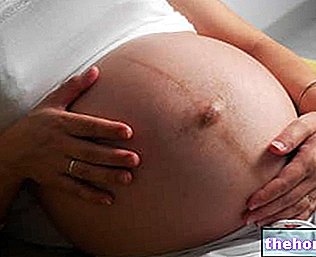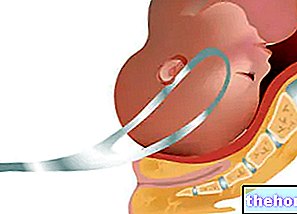Iron deficiency anemia
Iron deficiency anemia is a disease caused by the lack of iron in the body, which occurs very often during pregnancy. If you complain of fatigue, tachycardia, decreased concentration and paleness, most likely you are faced with a state of anemia, the symptoms of which are determined, beyond the iron deficiency itself, by poor oxygenation of the tissues. Iron, in fact, represents a fundamental mineral for the synthesis of hemoglobin, involved in cellular respiration and in the metabolism of nucleic acids.
Iron requirement

Choice of foods during pregnancy
As it is known, during pregnancy it is necessary to choose foods with greater care, to protect the health of the woman and in particular of the child; for example, even knowing that red meat, especially raw, is an excellent source of iron , the woman should avoid consuming this food in its raw state, as it is likely a source of microorganisms that could harm the baby, causing serious diseases (such as toxoplasmosis). , soft cheeses with rind and molds, raw fish and unpasteurized raw milk from distributors. In addition, you should avoid eating too much fish, especially if large, due to the risk of accumulating heavy metals, such as mercury, which can cause serious damage to the baby's health.
Iron and Vit. B9
Although pregnant women generally pay close attention to following a correct diet, iron supplementation is still recommended, perhaps associating it with lactoferrin to favor its absorption; lactoferrin, in fact, binds and transports iron to the intestine and by binding to enterocytes facilitates its entry into the systemic circulation.
It is known that during pregnancy also a "supplementation of folic acid is essential for the development of the baby: folic acid (vitamin B9) is a coenzyme responsible for many cellular reactions and - since it is not synthesized by our body (even if a small amount is produced by the intestinal bacterial flora) - it must be taken regularly with the diet. Considering that folic acid can correct anemia in pregnancy, studies have been carried out concerning the iron-folic acid connection, to verify whether the intake of folic acid can somehow increase the availability of the mineral. In this regard, it was noted that the combined intake of iron and vitamin B9 improves blood parameters, correcting the iron deficiency; however, it should be considered that the joint integration of folic acid, lactoferrin and iron seems to be even more effective.
Iron deficiency
Iron deficiency in pregnancy is not a factor to be underestimated, as the baby could face many problems: it could be born before the established term, it could be underweight at birth or run a greater risk of iron deficiency in the first few months of life; may have a neurological and behavioral deficit in school age and be more prone to developing cardiovascular disease. From here we understand how important iron intake is for the mother throughout pregnancy, especially in the third trimester, when the body's demand for iron increases considerably.
If a decrease in iron can cause serious consequences, a moderate supplementation is practically risk-free and absolutely advisable to favor the deposit of the same in the unborn child and in the mother. Such supplementation is useful both for pregnancy and for the postpartum period.
Food pairing
Beyond the specific iron supplementation, pregnant women should also be advised a correct combination of foods, in order to promote maximum iron absorption: therefore, it is not enough to often eat foods such as whole grains, lean meat, fish, shellfish, nuts and green vegetables; the bioavailability of iron is in fact increased if the foods containing it are taken together with sources of ascorbic acid: vitamin C is very present in nature, especially in vegetables and fresh fruit. Vitamin C, in addition to making iron more bioavailable, has excellent antioxidant properties, which protect the body from the attack of free radicals.
There are foods that hinder the absorption of iron: for this reason, the excess of tea, rich in tannins, and whole grains, rich in phytic acid, is not recommended.
Iron supplementation: risks
If suggesting iron supplementation during pregnancy is excellent advice, it is not always easy to put it into practice: in fact, the adverse effects ascribable to iron supplementation are certainly not pleasant, so much so that women sometimes have to stop. "intake of the supplement. Among the most common ailments that can derive from an" iron supplement, there is a consistent gastric irritability, which can cause not only cramps and nausea, but also vomiting. At the intestinal level, the woman may complain of constipation, diarrhea, pain and changes in the bacterial population (dysbiosis).
Tradition teaches
In ancient times, buckwheat honey was used to try to combat anemia, which boasts remineralizing and restorative properties.
Particular was the "apple and nails" technique, recommended for women immediately after pregnancy to avoid anemia: the practice consisted in "inserting five long nails into an apple for two hours; after the necessary time, the nails were removed and the apple was eaten. This is because the apple, being rich in humidity, is able to oxidize the iron; in doing so, the fruit is enriched with this mineral, even if in a poorly bioavailable form.









.jpg)


















